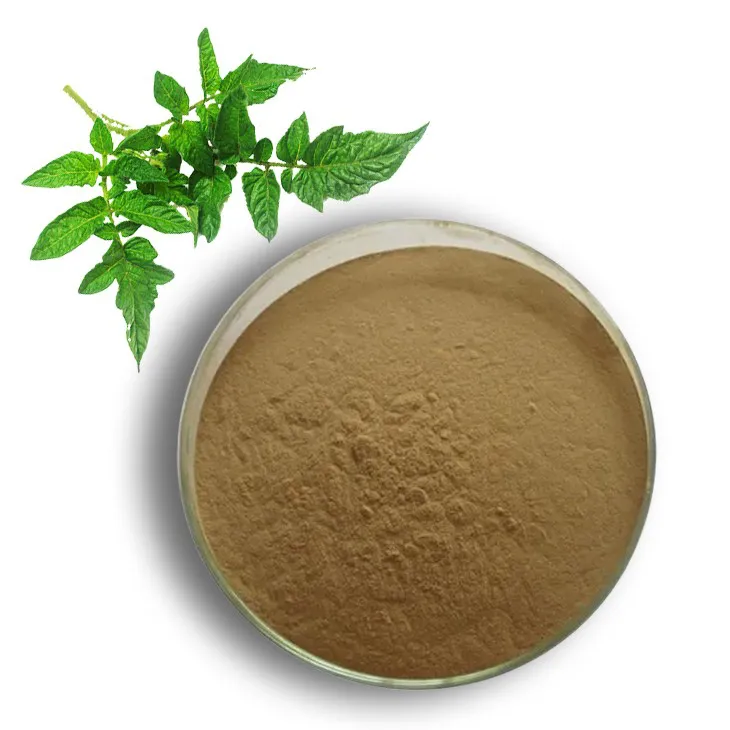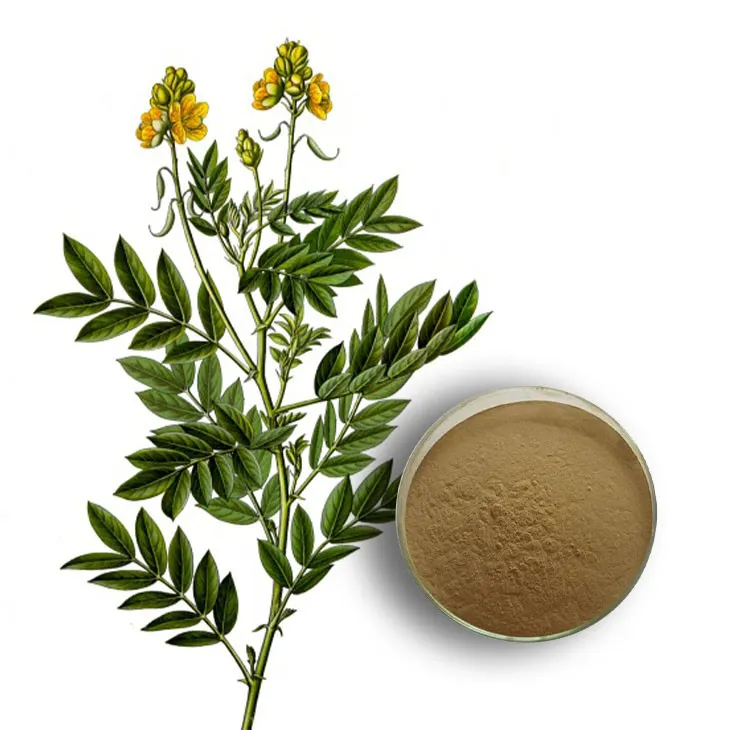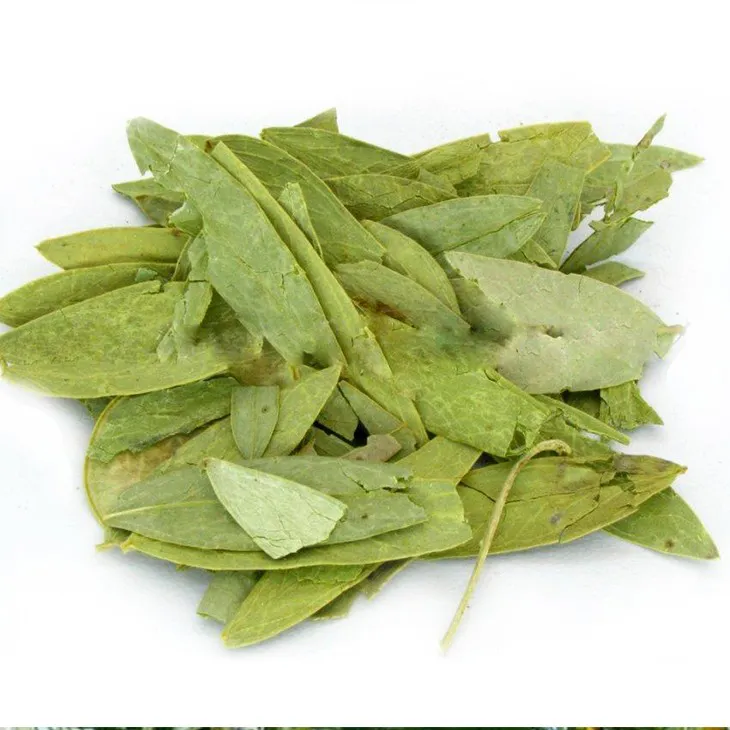- 0086-571-85302990
- sales@greenskybio.com
Read our comprehensive primer on high - quality organic senna leaf extract.
2024-12-14

Cultivation of Organic Senna Plants
Organic Farming Practices Organic senna plant cultivation is a meticulous process. It begins with the selection of suitable soil. The soil should be well - drained, rich in organic matter, and have a proper pH level. Organic farmers often test the soil beforehand to ensure it meets these criteria. For example, a pH range of 6.0 - 7.5 is generally considered favorable for senna plants.
Seed Selection High - quality seeds are the foundation of a good senna crop. Organic farmers look for seeds that are free from genetic modification and have a high germination rate. They may source seeds from reliable suppliers who specialize in organic plant varieties.
Growing Conditions Senna plants thrive in warm and sunny climates. Adequate sunlight is crucial for their growth and the production of active compounds in the leaves. Organic farmers also need to manage water carefully. Over - watering can lead to root rot, while under - watering can stunt the plant's growth.
Pest and Disease Management In organic cultivation, chemical pesticides are not an option. Instead, farmers rely on natural methods such as crop rotation, companion planting, and the use of beneficial insects. For example, planting marigolds near senna plants can help repel certain pests. Additionally, natural predators like ladybugs can be introduced to control aphids.

Benefits to Human Health
Laxative Effect One of the most well - known benefits of organic Senna Leaf Extract is its laxative effect. The active compounds in senna, such as sennosides, stimulate the muscles in the colon, promoting bowel movements. This can be helpful for people suffering from constipation. However, it should be used with caution as overuse can lead to diarrhea and electrolyte imbalance.
Antioxidant Properties Senna Leaf Extract also contains antioxidants. These substances help to neutralize free radicals in the body, which are associated with various diseases such as cancer, heart disease, and aging. By reducing oxidative stress, the antioxidants in Senna Leaf Extract may contribute to overall health and well - being.
Digestive Health In addition to its laxative effect, senna leaf extract can also improve overall digestive health. It may help to regulate the digestive system, relieve indigestion, and promote the absorption of nutrients. However, more research is needed to fully understand these effects.

Comparison with Other Similar Products
Chemical Laxatives Compared to chemical laxatives, organic senna leaf extract is often considered a more natural option. Chemical laxatives may have stronger and more immediate effects, but they can also come with a higher risk of side effects. Organic senna leaf extract, on the other hand, works in a more gentle and natural way, although it may take a bit longer to show results.
Other Herbal Laxatives There are other herbal laxatives in the market, such as cascara sagrada and aloe vera. While these also have laxative properties, they have different chemical compositions and mechanisms of action. For example, cascara sagrada contains hydroxyanthracene derivatives, similar to senna, but may have a different potency. Aloe vera, on the other hand, has additional soothing and anti - inflammatory properties.
Synthetic Digestive Aids Synthetic digestive aids are designed to improve digestion in various ways, such as increasing stomach acid production or improving enzyme function. Organic senna leaf extract differs in that it mainly focuses on promoting bowel movements and has antioxidant and potential overall digestive health benefits, rather than directly targeting specific digestive enzymes or stomach acid levels.

Quality Control in Production
Harvesting The timing of harvesting is crucial for maintaining the quality of organic senna leaf extract. Senna leaves should be harvested at the right maturity level. If harvested too early, the leaves may not contain sufficient active compounds, while if harvested too late, the quality may decline.
Processing During processing, strict quality control measures are necessary. This includes proper drying of the leaves to prevent mold growth and preserve the active compounds. The extraction process should also be carefully monitored to ensure that the extract contains the desired levels of active ingredients.
Testing Regular testing is essential to ensure the safety and quality of the organic senna leaf extract. Tests may include analysis of the active compound content, such as sennosides, as well as tests for contaminants such as heavy metals, pesticides, and microbial organisms. Only products that pass these tests can be considered high - quality and safe for consumers.
Packaging and Storage The packaging of organic senna leaf extract should be designed to protect it from light, moisture, and air, which can degrade the product. Proper storage conditions, such as cool and dry environments, are also important to maintain the quality of the extract over time.
FAQ:
What are the key aspects of organically cultivating senna plants for high - quality extract?
Organic cultivation of senna plants involves several key aspects. It requires the use of natural fertilizers like compost and manure instead of synthetic ones. Pesticides used must also be of natural origin, such as neem oil. The soil quality is carefully maintained, often through crop rotation and proper irrigation techniques. This helps to ensure that the senna plants grow in a healthy environment without the exposure to harmful chemicals, which in turn results in a high - quality extract.
How does organic senna leaf extract compare to non - organic versions in terms of laxative effect?
Both organic and non - organic senna leaf extract can have a laxative effect. However, organic senna leaf extract may be considered purer as it is free from synthetic chemical residues. The laxative effect of both is mainly due to the presence of compounds like sennosides. But some people may prefer the organic version because they believe it is more natural and potentially less likely to cause side effects associated with chemical contaminants.
What are the main health benefits of organic senna leaf extract apart from its laxative effect?
Organic senna leaf extract may have other potential health benefits. Some studies suggest it may have antioxidant properties, which can help in fighting free radicals in the body. It may also have a mild anti - inflammatory effect. However, more research is needed to fully understand these potential benefits and how they can be utilized in a therapeutic context.
How is quality control maintained during the production of high - quality organic senna leaf extract?
Quality control during the production of organic senna leaf extract is crucial. It starts with the careful selection of raw materials, ensuring that the senna plants are grown organically and harvested at the right time. During the extraction process, strict parameters are followed regarding temperature, pressure, and solvents used. The final product is then tested for purity, potency, and the absence of contaminants. Regular audits of the production facilities are also carried out to ensure compliance with organic and quality standards.
What makes organic senna leaf extract stand out compared to other laxative products in the market?
Organic senna leaf extract stands out for several reasons. Firstly, it is a natural product, which is appealing to consumers who prefer natural remedies. It is also often considered a more holistic option as it may have additional potential health benefits apart from just its laxative effect. Additionally, the organic status gives it an edge in terms of purity and the absence of synthetic chemicals, which may be present in some other laxative products.
Related literature
- Organic Senna Leaf Extract: Cultivation and Medicinal Properties"
- "Quality Assurance in Organic Senna Leaf Extract Production"
- "The Health Benefits of Organic Botanical Extracts: Focus on Senna Leaf"
- ▶ Hesperidin
- ▶ Citrus Bioflavonoids
- ▶ Plant Extract
- ▶ lycopene
- ▶ Diosmin
- ▶ Grape seed extract
- ▶ Sea buckthorn Juice Powder
- ▶ Fruit Juice Powder
- ▶ Hops Extract
- ▶ Artichoke Extract
- ▶ Mushroom extract
- ▶ Astaxanthin
- ▶ Green Tea Extract
- ▶ Curcumin
- ▶ Horse Chestnut Extract
- ▶ Other Product
- ▶ Boswellia Serrata Extract
- ▶ Resveratrol
- ▶ Marigold Extract
- ▶ Grape Leaf Extract
- ▶ New Product
- ▶ Aminolevulinic acid
- ▶ Cranberry Extract
- ▶ Red Yeast Rice
- ▶ Red Wine Extract
-
Phyllanthus Emblica Extract
2024-12-14
-
Medicinal Marshmallow Extract
2024-12-14
-
Citrus bioflavonoids
2024-12-14
-
Plantain extract
2024-12-14
-
Cranberry Extract
2024-12-14
-
Cocoa Extract
2024-12-14
-
Cactus Extract
2024-12-14
-
Chaste Berry Extract
2024-12-14
-
Oat Straw Extract Powder
2024-12-14
-
Lily extract
2024-12-14





















